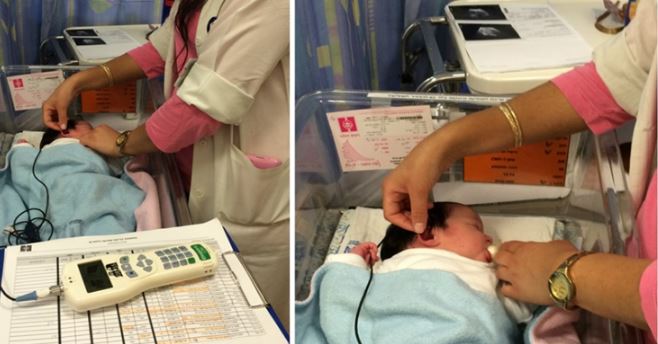Roughly 1 in 160 children worldwide lives with autism, or autism spectrum disorder (ASD), a range of conditions characterized by challenges with social skills, behaviors, and communication, according to the World Health Organization. In the United States, the Center for Disease Control and Prevention (CDC) estimates the prevalence of autism as 1 in 68 children (according to a 2012 survey), similar to diagnoses found in Canada, Denmark, and Sweden.
In Israel, 1 in 100 children are diagnosed with autism and over 500 infants are diagnosed annually, according to the Israeli Society of Children and Adults with Autism ALUT.
Currently, over 20,000 individuals in Israel are estimated to be on the spectrum according to ALUT, up from roughly 13,000 in 2016 and close to 4,000 in 2007, according to statistics made available in 2017 by the Israeli Ministry of Social Affairs and Social Services. The ministry said the uptick was due in part to increased awareness of the disorder.
The increase is also in line with diagnoses around the world including the US, a country with advanced systems for tracking and monitoring autism diagnoses. But there are still discrepancies. Though the CDC reported 1 in 68 according to a 2012 survey of children born in 2004, a 2015 National Health Statistics report found the actual US autism rate to be much higher at 1 in 45. Hong Kong and South Korea appear to have the highest rates, at 1 in 27 and 1 in 38, respectively.
While the world is getting better at diagnosing autism, the disorder is still a highly complex, and extremely difficult to classify in its early stages. ASD has a wide range of associated symptoms and behaviors and no two people experience the disorder in the same way. Also, autism is typically not diagnosed until at least age two, if not later, because autism diagnoses are based on behavioral observations and verbal communication skills which usually don’t appear until at least toddlerhood.
Israeli researchers and companies, however are looking for ways to not only treat but also diagnose and even reduce the risk of autism at much earlier stages, as early as infant, newborn, and even fetus development. These researchers and companies are establishing methods that, while unconventional, can also be described as groundbreaking.
To mark the 11th annual World Autism Awareness Day 2018, here are three Israeli developments in autism research.
Screening for autism in newborns
Israeli-developed SensPD is an award-winning product providing a solution for early detection of autism.
Founder Raffi Rembrand, an Israeli engineer, began looking at autism more closely after his son was diagnosed with autism in 1987 at age four by an autism expert at UCLA. By then Rembrand claims he “missed the train” — it was too late to offer the child early-intervention therapies critical to helping improve motor, cognitive, communication, and sensory processing skills. Thirty years later, he’s making up for it with a non-invasive solution he has developed offering parents and doctors a way to diagnose autism in newborns and infants.
Before Rembrand developed his solution, researchers at the Weizmann Institute and the University of California, San Diego, published a report in July 2016 that they had found a biomarker that can diagnose autism in infants using a special fMRI test that checks for low synchronization of brain activity in infants (including autism). Prior to this, autism was mainly diagnosed through verbal and behavioral communication, which isn’t usually apparent until age two.
Rembrand wanted to find an even easier to way to screen newborns and infants for signs of autism. His SensPD diagnostic test makes use of the same device used in newborn nurseries to test the hearing of infants by measuring otoacoustic emissions (OAE). The OAE measurement is what can indicate the baby’s sensory perception, Rembrand says.
“I wanted to implement a new method to the same device,” the Kiryon Tivon resident tells NoCamels, noting that other factors, including eye contact and the inability to interpret social cues, are just as important as sensory perception.
During his research, Rembrand also conferred with a wide range of autism experts in America and Israel to see what he could glean from each expert in different fields, like pediatrics, otology and so on. “I wanted doctors to diagnose autism with the ability to tie [their different expertise] together,” he says.
“This is the beauty of Israel as a ‘Startup Nation.’ He may know nothing about hearing, but he can talk with an expert in the subject,” SensPD CEO Maayan Shahar tells NoCamels.
Shahar says Rembrand’s solution is simple and user-friendly and the goal of the company is to bring it to market, make it available to everyone, and eventually make it the go-to “gold standard” in hospitals. “We want to create a ripple effect,” she says, describing the device as “more cost-effective than a lab or technician.”
SEE ALSO: Israeli Study Shows Medical Cannabis Can Treat Autism In Children
Sign up for our free weekly newsletter
Subscribe“Families who have a child with autism will pay upwards of $461 billion by the year 2025,” she says, referring to a 2015 study in the Journal of Autism and Developmental Disorders. If we change the way we look and treat autism, we can even think about how to redirect the funds to other things.”
SensPD recently received an SME (Small and Medium-sized Enterprises) grant from the Horizon2020 program, the EU’s biggest research and innovation program with nearly 80 billion euros of funding available over seven years. The device is in its final stages of clinical trials in Israel and will soon move on to clinical trials in the US.
Medical cannabis as an alternative treatment for autism
Parents of children with more severe ASD are always in search of ways to relieve serious symptoms that may include violence, aggression, anxiety, self-injury, hyperactivity, and sleep problems. One of the different ways is the use of cannabidiol (CBD), one of the cannabinoids, or natural compounds, found in cannabis.
The effects of Cannabidiol was used for the first time in a recent study on 53 children and young adults ranging in ages from 4-22, over the course of roughly two months. After obtaining special licenses for the use of CBD from the Israeli Ministry of Health, Parents were instructed on how to administer the oral drops, which featured Avidekel, a high-CBD strain developed by Tikun Olam, the largest supplier of medical cannabis in Israel and a brand recognized as a pioneer of modern medical cannabis.
Ma’ayan Weisberg, head of International Relations for Tikun Olam, tells NoCamels that the study showed a decrease of 67.6 percent in self-injury and rage attacks, while hyperactivity symptoms improved by 70 percent, sleep problems improved by 71.4 percent, anxiety problems and mood improved by 47.1 percent, and social communication skills improved by a whopping 86.7 percent. The overall rate of improvement in symptoms was 74.5 percent, according to the study which recommended further research into long-term effects.
Weisberg, who calls the study “revolutionary,” tells NoCamels, “In the past, sedatives and anti-psychotic drugs were used in extreme cases. So cannabis is really an amazing alternative if you think about it. Every strain is different so it really is a more personalized treatment. Doctors and societies need to get on board. Together in collaboration, we can definitely create a better solution.”
The use of cannabis to treat autism in Israel is not a new concept. Dr. Adi Aran, the director of the neuro-pediatric unit at Shaare Zedek Medical Center in Jerusalem lead the first clinical trial to determine medical marijuana effects on children with autism in January 2017. In this study, 120 autistic children and adults aged 5 to 29 received CBD oil with low levels of tetrahydorcannabinol (THC) so that the children receiving the oil didn’t feel high. The study is supposed to last through the end of 2018.
Reducing the risk of autism before the baby is born
A new study led by an Israeli professor published earlier this year found that women who take folic acid supplements and multivitamins before and during pregnancy have a reduced risk of having a child with autism.
The study, led by Professor Stephen Levine of the University of Haifa in collaboration with researchers from the United States, Canada, and Sweden, and published in JAMA Psychiatry journal in January 2018, focused on 45,300 Israeli children born between January 1, 2003 and December 31, 2007, who came from the registry of Israel’s Meuhedet Health Service and were diagnosed with ASD. The researchers found that women who took the supplements during pregnancy were 73 percent less likely to bear a child with autism, while women who took the supplements consistently prior to pregnancy were 61 percent less at risk.
“We looked at multiple solutions, ” Prof. Levine tells NoCamels, “We also examined women [who had been taking folic acid and multivitamin supplements] two years before pregnancy,” he said, finding that it is also tied to the reduced risk of ASD.

Continuous use of pre-natal multivitamins could reduce the risk of having having a baby with autism, an Israeli study says. Photo via YuMaNuMa, Flickr
There were exceptions of course, he said, including women who inevitably had a child with autism despite taking folic acid and multivitamin supplements consistently. “The study is not foolproof.”
SEE ALSO: Israeli Researchers Decode Autism Genes
However, it does have important public health implications. “Just think about what a vitamin is. It’s a choice behavior and it’s modifiable. We can now start to examine the utility of other vitamins across the board,” Levine says.
Related posts

Israeli Medical Technologies That Could Change The World

Harnessing Our Own Bodies For Side Effect-Free Weight Loss

Missing Protein Could Unlock Treatment For Aggressive Lung Cancer






Facebook comments